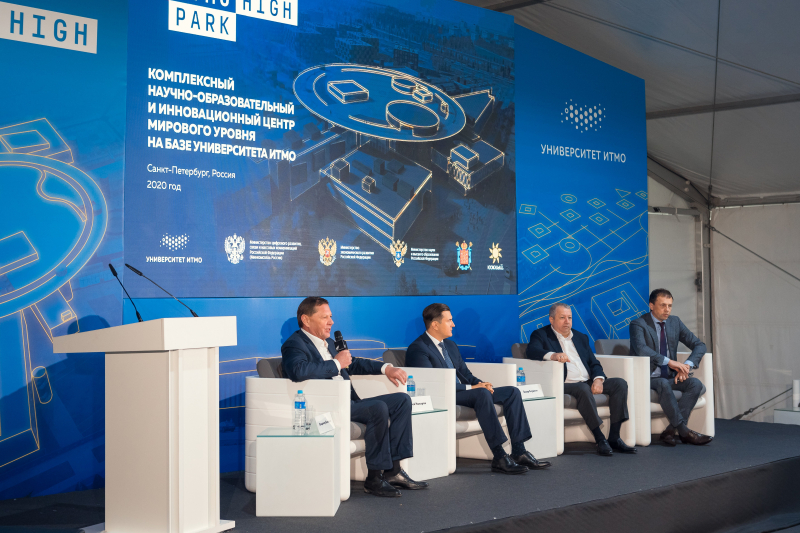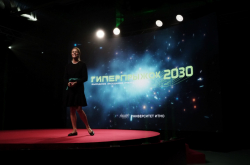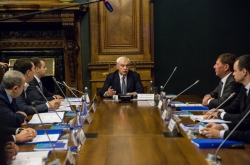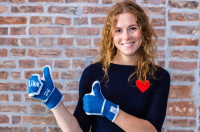Press conference
The event kicked off with a press conference, which also took place at the site of the future ITMO Highpark. Vladimir Vasilyev, ITMO University’s Rector, Andrey Nazarov, General Director of ITMO Highpark JSC, and Zakhar Smushkin, chairman at START Development development company, took part in the conference and talked about the key stages in the project.
ITMO Highpark is a complex project that includes ITMO’s second campus (an academic building for 3,600 Master’s and PhD students, research centers and dorms) as well as a Techno Valley and a Business park (you can learn more about the history of the project and its stages in our previous article).
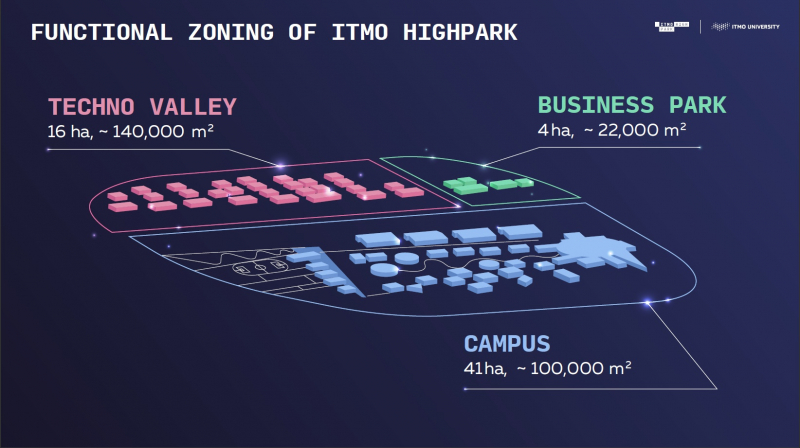
According to Vladimir Vasilyev, the model of operation that will be adopted at ITMO Highpark, does not exist anywhere else in Russia. At its core, the project has a combination of education, science and business. That is why ITMO Highpark includes several blocks that will allow it to become a platform for the generation of new knowledge and its subsequent commercialization.
The first stage of the project includes ITMO’s second campus, the Student Club and one of the university’s dorms. Vladimir Vasilyev explained that the building permit for these objects is planned to be obtained this autumn, while the construction itself will start at the end of 2020 or the beginning of 2021, and their completion is set for 2022.
Since 2014, one of the main partners of ITMO Highpark is START Development company – the initiator of Yuzhny satellite city project and owner of land to the south of St. Petersburg. Zakhar Smushkin underlines that it is the innovation potential of ITMO Highpark that is one of the key attraction points to shape not only this territory but also St. Petersburg.
“If we look at this from a wider perspective, what fields of development does St. Petersburg have? Tourism? To a certain extent, yes. By the way, the castles of Pushkin and Pavlovsk are only 6 km away from here. The Yuzhny satellite city will naturally provide this connection to St. Petersburg’s cultural heritage. But the most important thing for any city these days is intelligence. And I think that ITMO Highpark is the only project in the city that accounts for that,” says Zakhar Smushkin.
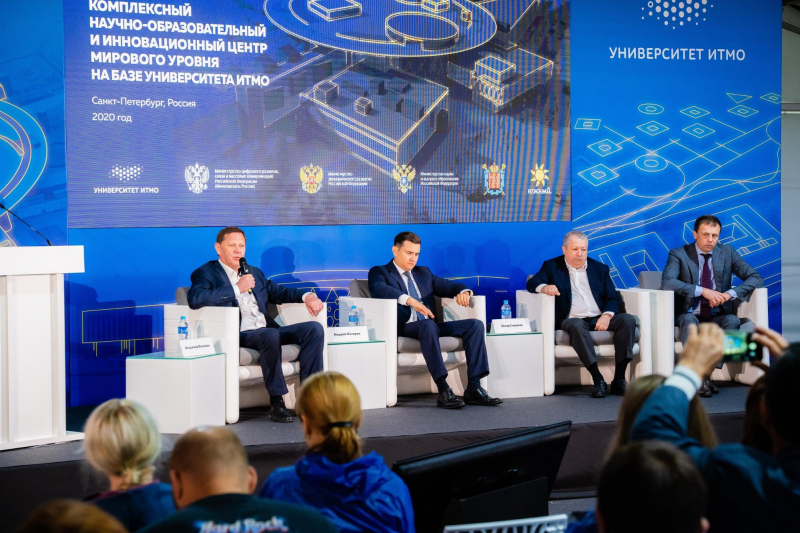
He also noted that Yuzhny will be developing in parallel to the construction of ITMO Highpark. The apartment blocks are planned to be started in 2021, while the first objects will be built in 2023. Thus, the social and commercial infrastructure will be developing here in the next few years.
You can watch the whole conference here (in Russian).
What will ITMO be like in the next 10 years?
What are the key factors in the future of education? What kind of challenges will it face? And how will ITMO’s image be shaped in these circumstances? During this onsite meeting, the participants presented different outlooks on the university’s development strategy for 2030.
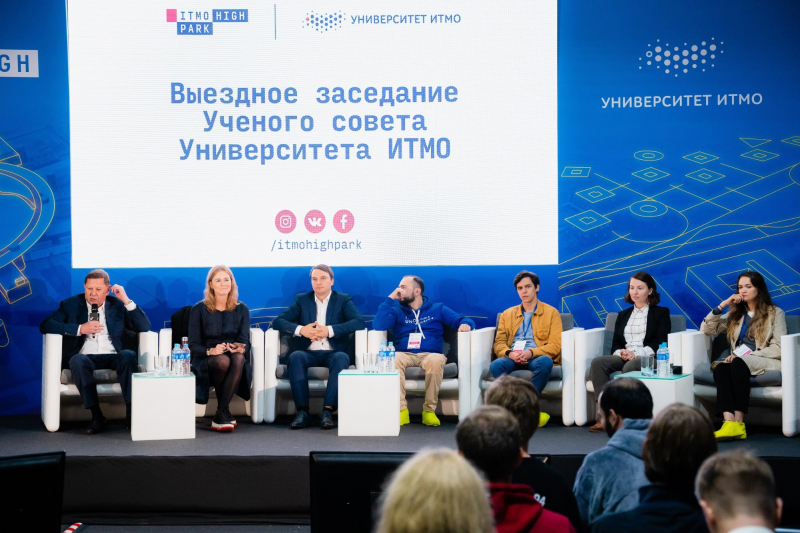
As Vladimir Vasilyev underlines, this year the Academic Council changed its format and it was not a traditional presentation of reports, but a dialogue that included every participant.
Daria Kozlova, ITMO’s First Vice Rector, presented the image of the university and a global vision of its development until 2030. She noted that due to the pandemic, universities all over the world had to adapt to the “new normal”. The market of educational services and research activities is already being transformed. Major organizations that didn’t work in education before are entering the market while traditional universities are striving for platform solutions – they form consortiums and collaborations and develop by the principles of global corporations.
In this new reality, it is especially vital for the university to clearly outline the ecosystem that it finds itself in and the partners that share its values and are ready to work on new projects. At the same time, ITMO doesn’t have to leave the foundations of the previous years behind when entering the new decade.
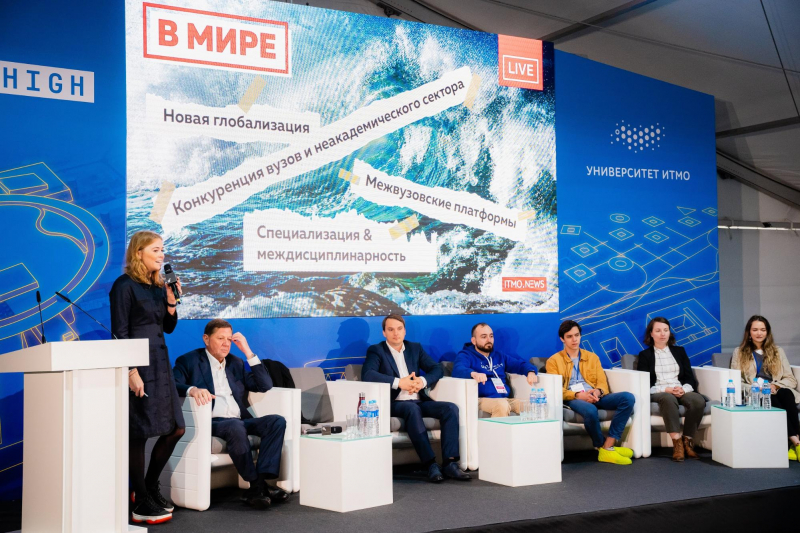
“We work on the global market, solving global tasks. On the other hand, we can already say that ITMO has become a systemically important university for Russia, a university that brings to life the country’s national goals. And there is no contradiction. Our city’s mission is to be a window to Europe, and ITMO’s mission is to broadcast cutting-edge technologies and services to the heart of our country, to set the standard for higher education in Russia,” said Daria Kozlova.
To achieve this, ITMO has to set ambitious goals – to develop platform, interdisciplinary solutions and services that will suit not only the university’s staff and students but also the external audience.
At the same time, despite this broad overview, people have to always be at the center of the university’s ecosystem. ITMO’s services and products have to always keep in mind their personal requirements and uniqueness. And finally, ITMO University is always in motion, it is always on the lookout for new teams and like-minded people. The university has to create an environment for people to develop their abilities, allowing them to grow not only in one track but in many roles and fields.
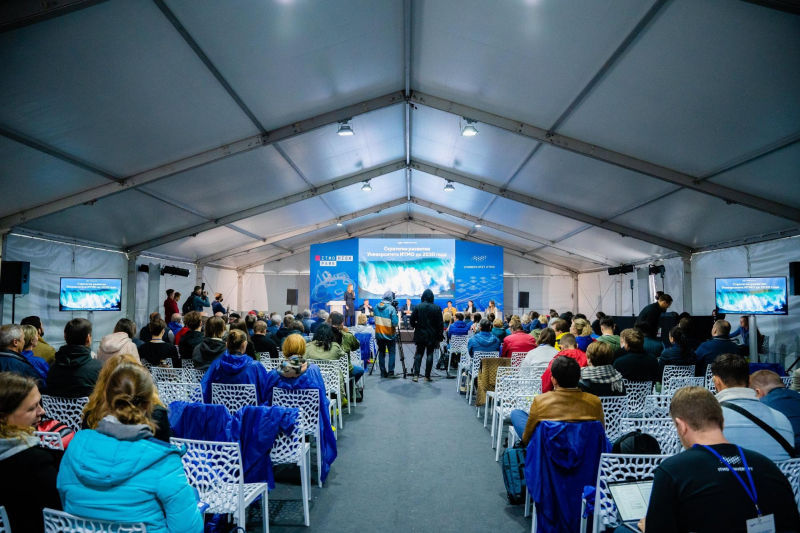
The three cornerstones of scientific potential: people, infrastructure, openness
The possibilities of developing ITMO’s research potential were presented by Sergey Makarov, the head of ITMO’s Laboratory of Hybrid Nanophotonics and Optoelectronics, this year’s winner of the President of Russia Award in Science and Innovation for Young Scientists.
According to him, thanks to Project 5-100, a lot of successful teams have entered the university, but now it is important to raise the efficiency of research activities. It can be done by looking into three fields.
The first one is people. The university has to build up on the already existing experience of collaboration with the world’s leading researchers by hosting international conferences and schools, initiating long term internships of its PhD students and young scientists at the world’s top universities. This practice doesn’t only provide students with new experiences but also helps the whole team to make new connections in the international research community. It is also necessary to attract the best young researchers to create new laboratories targeting new cutting-edge fields.
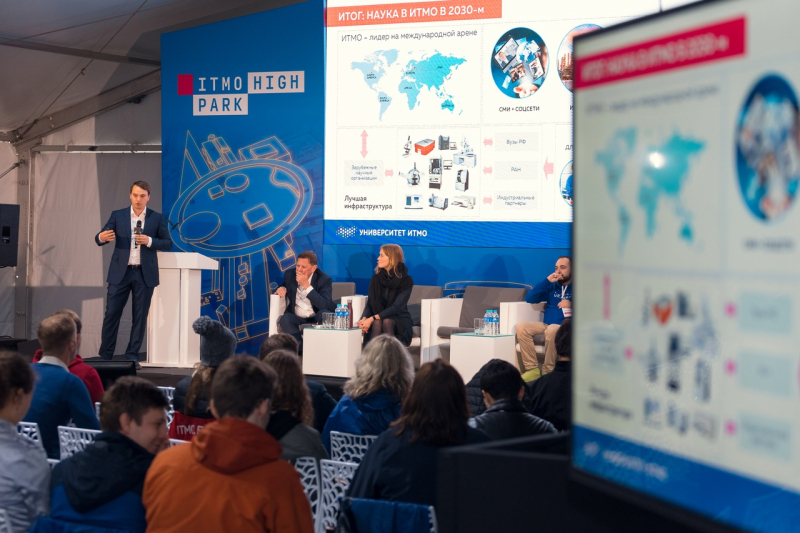
The second one is infrastructure. The internal one has to be improved by establishing efficient interaction between the university’s labs, and the external one – by attracting new academic and industrial partners.
Finally, the third one is the openness of a researcher’s work and a different goal-setting – science for society. According to Sergey Makarov, Russian science has to step away from the “science for science” principle, often adopted by laboratories supported by grants and foundations. In the next 10 years, ITMO has to orient towards prominent fields and develop those that are most prospective globally and can benefit society, industry and fundamental research.
The environment in which innovation is created
Alexandr Kapitonov, Dean of the Faculty of Infocommunication Technologies, CEO of DCZD.tech and co-founder of Airalab and Merklebot, spoke about the innovative and entrepreneurial environment and its capacity building.
Over the past ten years, the university consistently built the entrepreneurial environment and infrastructure. The Faculty of Technological Management and Innovations (FTMI) provides training and forms teams of young entrepreneurs, Technopark creates attraction points for existing businesses with the potential for large-scale entry to the market, the university Accelerator (in Russian) selects the best youth ideas and projects on promising topics and prepares business projects, and the Science Business Partnership Center (in Russian) creates a pool of corporate partners, launches R&D projects and R&D and design projects.
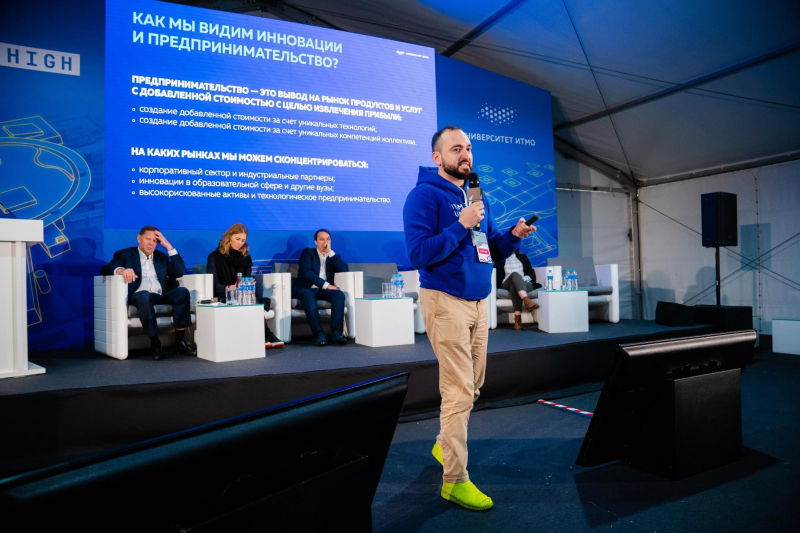
To understand how the university’s business environment will develop in the coming years, according to Alexandr Kapitonov, it is necessary to answer a number of questions. How do we see the ideal graduate? Are we ready to share risks with entrepreneurs? Are we ready to spread unique team technologies within universities and work in open competitive markets?
“Already now we need to clearly formulate the position of the university regarding students and staff’s entrepreneurship, we should also introduce a cross-cutting project discipline in the spring semester to develop practical skills among students. We should direct FTMI students within the discipline to search for ideas and projects so that they become members of the scientific group. It is important for us to create reasons for our graduates to return to the university, and finally, we need to use the university site as a testing ground for new technologies,” says Alexandr Kapitonov.
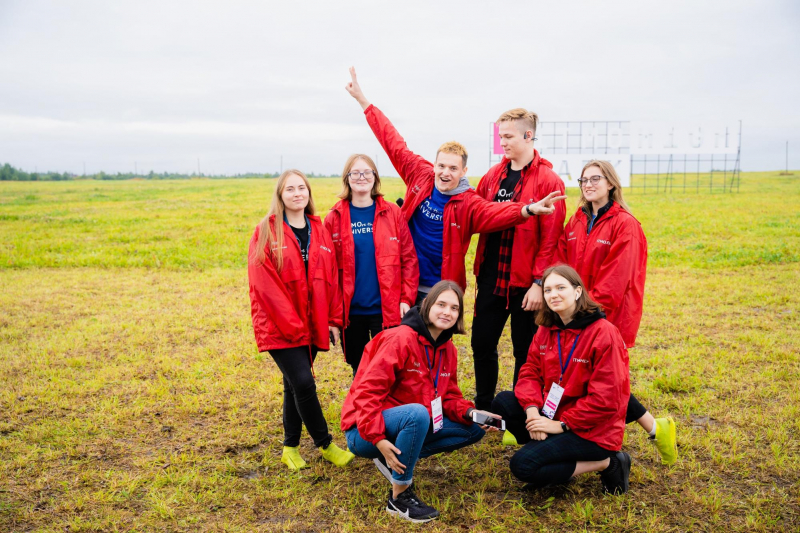
Digital core of the university
Last December, ITMO University won a competition on creating a network of centers to develop a Digital University model. The platform for the provision of digital university services will be ITMO’s Avatar project, that is currently being worked on by a development team led by Klavdia Bochenina, Senior Research Associate at ITMO's National Center for Cognitive Technologies.
The project was a response to the main challenge of modern education – the digital transformation of the production and consumption of knowledge.
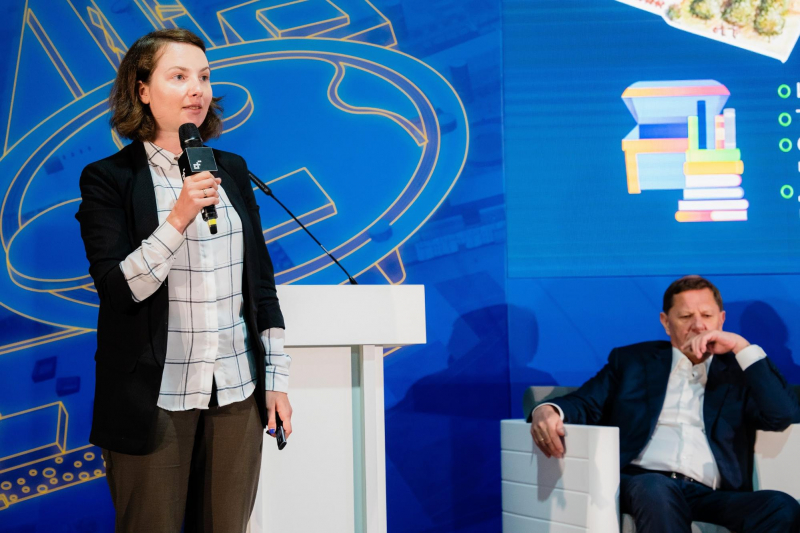
“We live in an era of unprecedented cognitive load. This is primarily felt by people who work with knowledge and/or are involved in scientific and educational environments. Therefore, we need to create our own personal development and learning model. And a modern university must respond to this challenge by creating technologies that will facilitate the transition to both network-centric and personality-oriented forms of interaction in the educational process,” Klavdia Bochenina stresses.
ITMO’s Avatar project aims to create an ecosystem of personal digital assistants that will help students and staff navigate in the university's field of opportunities, taking into account the personal interests, goals and perceptions of each user. The service should become a "Personal University" in your pocket – with real-time monitoring of events and news, the ability to choose training modules and tracks, with a direct channel of communication with colleagues, teachers and other students, as well as planning an individual path for developing competencies.
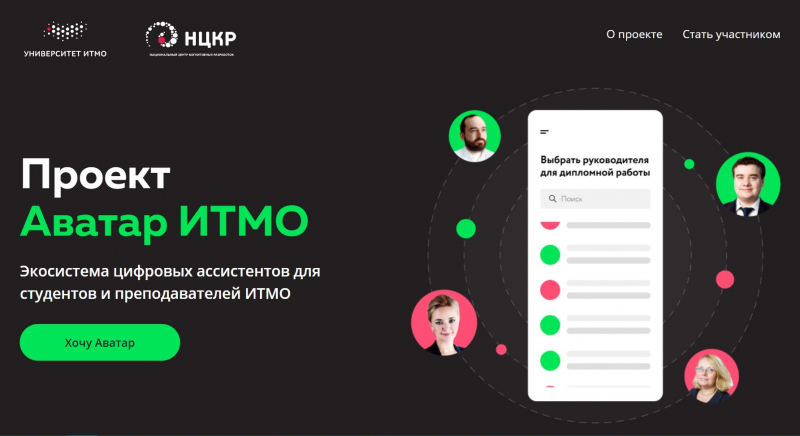
“The project was initiated at the beginning of 2020, and it still has a long way ahead,” Klavdia Bochenina emphasized. The service will be developed by several generations of personal assistants. The first generation will be tested already in the fall semester of 2020.
Working with talents and harmonious student development
Anna Veklich, Head of Strategic Communications Department, spoke about the system of working with talents and attracting the best prospective students to the university. According to her, over the past five years, the average USE score of Bachelor’s programs has grown significantly (from 82.7 to 93.1), as well as the number of winners of the Olympiads (from 157 to 446 people). In the Master's and PhD studies of the university, a significant increase in competition for most educational programs and specialties was noted. The first-year students in 2020 are graduates of the leading universities in Russia and the Top 400 universities in the world, 25% of which entered through the Portfolio competition, the Congress of Young Scientists and other projects.
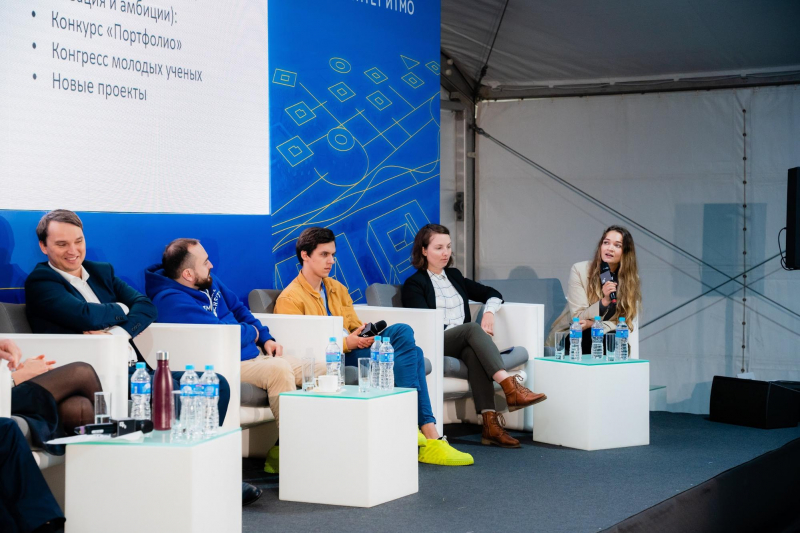
“Gifted applicants are the main guidance of the university. With this thesis we have been working for the past five years, and at the moment we have achieved the goal that we set for ourselves. But during this time, the applicants, their worldview and attitude to the university’s values, have changed. Therefore, the university needs to develop new ideas, revise its approach and begin to pay more attention to ambition and motivation, and not just academic achievements, points and diplomas,” says Anna Veklich.
The next steps should be the development of alternative options for admissions (the development of the ITMO.STARS competition large-scale work on pre-university training in high school – so that future students while still studying at school could “enter” ITMO University), systematic work on computer science in our city’s schools and throughout the country, where ITMO is the standard for the quality of education, and targeted work of heads of educational programs with applicants.
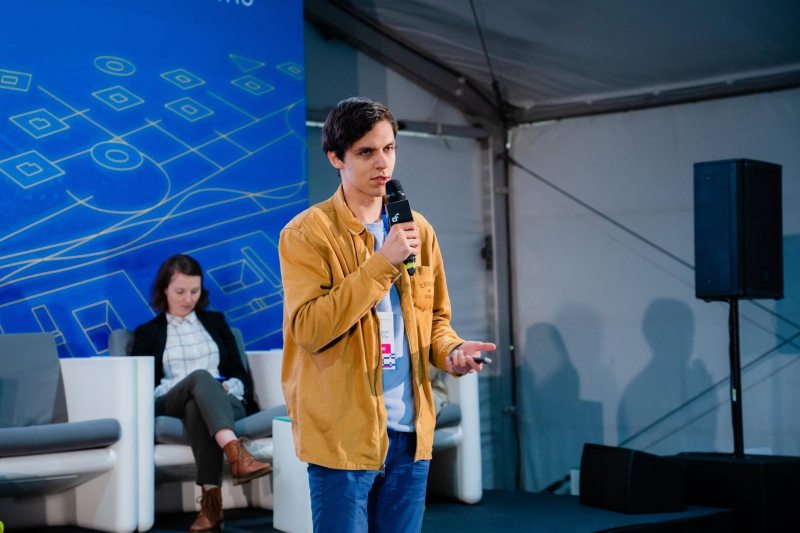
Sviatoslav Oreshin, third year Bachelor’s student of ITMO’s Faculty of Software Engineering and Computer Systems and a programmer at the Information Technologies and Programming Faculty, also took part in the meeting. Sviatoslav is head of educational analytics at the university. Some of the services developed by his team are provided in ITMO’s Avatar. He shared his view on creating a comfortable environment for students’ personal development.
According to him, the static education system, where students have almost no way of adjusting their programs, is out of date. ITMO University from 2030 is an environment that motivates and encourages every student, supporting them in discovery of their full potential – it doesn’t project its own views and mindset on them. Such an ecosystem will not only foster balanced personal development but will also attract the graduates to come back to the university – to work, host lectures or help with projects.
You can watch the full meeting of the Academic Council here (in Russian).
